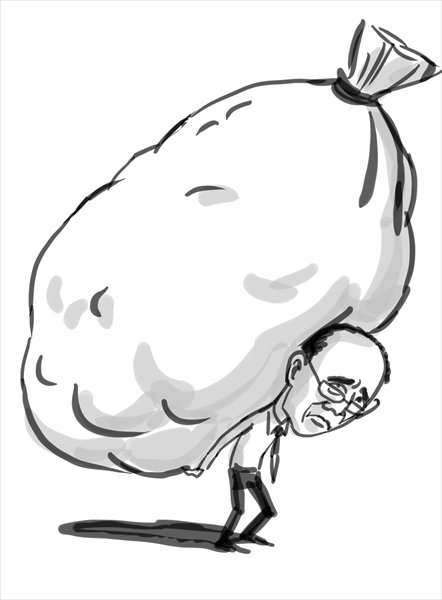Reform in Myanmar: success or failure?

Illustration: Liu Rui/GT
As we start 2015, there is an ongoing debate about Myanmar: Have the reforms engendered by President U Thein Sein's government in 2011 stalled? Have changes been far-reaching or cosmetic? The debate is an internal one as well - in Myanmar, opposition leader Aung San Suu Kyi has said that the reforms have stopped and others have also accused the government of going backward.
On the face of it, Myanmar has undergone a remarkable transformation.
Just four years ago, in January 2011 before the handover of power to the new government, there was little aid and foreign investment, hardly any development, and widespread ethnic conflict. Civil society had to operate with a low profile and outside of politics.
Today new, imported cars jam the streets and Yangon resembles a giant building site. Everyone is rushing around talking into mobile phones. The "international community" is present both in the aid and the investment sectors. The World Bank has opened its offices, and Western and Asian development partners make regular trips to Nay Pyi Taw to help with "capacity building" at an official level.
Daily newspapers criticize the government. Members of parliament debate new laws, holding the executive to account. Sometimes this even results in rows between the powerful speaker of the house and the president. Who five years ago would have thought that U Shwe Mann would team up with Suu Kyi in parliament against the President's Office? Who would have imagined that all the leaders of ethnic armed groups would meet together with the government to negotiate a nationwide cease-fire? Anyone suggesting this would have been labeled insane.
All this is the result of positive reforms; however there have also been negative consequences.
In rural areas, inflation has made the divide between urban and rural dwellers much starker. Land is now at a premium, so peasants are losing their livelihoods to development schemes, not least the special economic zones that are being created to bring more foreign investment to Myanmar. Social justice has not been part of the reform agenda, despite it being presented by President Thein Sein in his inaugural speech as a pillar of his plans.
The difference from before is that now those who have been wronged can now protest. So there are protests about land ownership all around the country as well as many other issues such as the new education law that is decried by the opposition National League for Democracy.
Overall the reforms have had a profound effect. But critics say that these have stalled and that much less change has been visible in the last 18 months. Clearly the Myanmese government chose to tackle the low-hanging fruit first, focusing on visible changes and quick wins. The reforms that have followed, such as structural economic reforms and changes in the education system, do not have immediate visible results and will take a few years - if not longer - to show any effect.
More serious is the charge that the reforms are not real. Many, including Suu Kyi, say openly that a deep-seated transformation would require changes to the constitution. These include that Suu Kyi, currently banned by a clause targeted at those with foreign spouses, should be allowed to stand for president and that the army should relinquish its 25 percent share in the legislative assemblies. They also say that unless this happens before the general election in 2015, the reforms would only have been cosmetic.
This, however, misunderstands the intentions of the current government and the aims of the reforms. The reforms were never intended to create a Western-style democracy, but rather a "discipline-flourishing democracy." In that sense it is true to say that the country has not changed much.
The government and the army remain in control as they expected. The leadership saw the need to change the circumstances in which the country was stuck and therefore engendered a reform process that has allowed for more inclusive decision-making, for a peace process and for economic changes that will eventually benefit the majority of Myanmar's population. They have been extraordinarily successful. Unless one understands the mind-set of the leadership behind the reforms, it is easy to expect a democratization process that was never planned.
However this should not mean that what has been achieved should be put down as a failure. Clearly it is not. Quite obviously the country has changed dramatically. When criticizing the reforms it might help to remember what Myanmar was like a mere four years ago, when the government was elected, yet alone a decade ago at the height of the junta.
The author is a South Asia expert with the Yangon-based Myanmar Egress, a non-profit organization founded by Myanmar scholars and social workers. opinion@globaltimes.com.cn